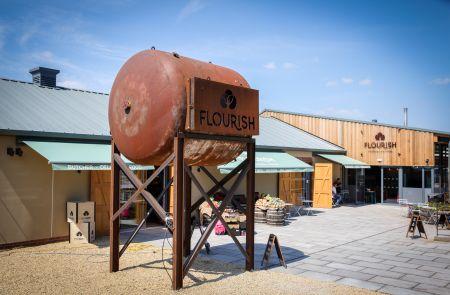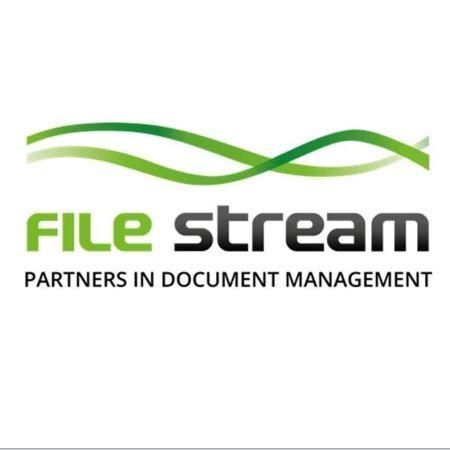Exploring Sustainable Coffee Cups And Our Environmental Impact
It seems an age ago that we were talking about takeaway cups and then COVID took over. However, it is still a huge issue that has not been resolved. Also whether it’s down to Brexit, COVID, shipping or any number of other influences the UK is suffering from a lack of common manufacturing products.
This has unfortunately forced us to re-evaluate our takeaway cup offering.
How It Started . . .
When we first switched our cups to an environmentally friendly version back in 2015 there were limited options available. Recyclable cups were not easy to recycle and expensive to produce in the UK, and so we opted for compostable cups. Compatible cups still needed to be composted at specialist commercial composting plants. The ones we went for would eventually break down into natural compounds, where most of the UK’s takeaway cups end up. Meaning no nasty toxins would go into the environment. However, this threw up its own issues.
We have had to get our product produced for us in China, where the technology was ahead of our own. This has a different impact on the environment through shipping. We had to balance the pros and cons and do what we thought was less harmful.
Due to the lack of pulped paper and restrictions on international shipping, the price of cups has gone up 300%. This is a cost that we feel we cannot pass on to our customers. We have decided to switch to recyclable cups instead that can be produced closer to home. These new recyclable cups can be recycled along with cardboard in normal streams.
This does throw up the question: What is the difference though?
We are revisiting the minefield that is take away cups and as a consumer making you aware of your options surrounding take away cups.
In January 2019, single-use coffee cups were all over the news, as MPs called for a ‘latte levy’ – a 25 pence charge for the use of a disposable cup – after it emerged that just 25% of the 2.5 billion cups disposed of annually in the UK are recycled. While biodegradable cups are cited as a more sustainable single-use alternative, are they truly a better option?
The majority of coffee cups still are made with a cardboard outer layer and a plastic lining. The materials are difficult to separate and could contaminate the paper and cardboard waste stream. Some companies are able to recycle standard cups. They separate the paper fibre from the plastic lining by adding warm water and pressure. This is a costly and timely process.
Over 90% of coffee cups do not end up in the home so it is the on-the-go, office and transport hub collection infrastructure that needs to be expanded.
To have a significant impact on the amount of waste currently being sent to incineration or landfill, the solutions offered require infrastructure expansion on a monumental scale. Retailers are trying to dissuade the use of disposable cups. However, the government are refusing to introduce a mandatory ‘latte levy’ – with some companies introducing their own charges.
Costa Coffee offers customers 25 pence off any hot or cold drink if consumers bring their own reusable cup. The chain also aims to ensure one cup is recycled for every takeaway cup sold. They state that ‘by 2020, we hope to recycle up to 500 million takeaway coffee cups a year.’ Starbucks has a 25 pence discount for customers who bring their own reusable cups. They have also rolled out a five-pence charge for those using disposable cups. Yet, research by Starbucks shows that only 1.8% of all its hot drinks are now sold in reusable mugs, proving that the discount alone is not enough of an incentive for shoppers.
There is also the Bristol-based chain Boston Tea Party, which famously got rid of all single-use takeaway cups overnight. However, these seem to have gone out of the window as COVID has forced everyone to return to take away cups only.
Understanding The Difference
In the face of a lack of recycling facilities for paper cups and the low uptake of reusables from consumers, biodegradable cups have been put forward as a solution to the problem, due to the network of existing composting facilities and reduced significance of liquid contamination. However, these cups can create even more problems if they are not disposed of properly. With the rise of people choosing to pass on plastic, the range of more sustainable disposable items has sky rocketed.
As a result, lots of people ask whether biodegradable coffee cups can go in the food and garden bin. Unfortunately, the answer is no. No matter what’s on the label, biodegradable cups, straws and plates can’t go in your food and garden bin. And here’s why. First of all, let’s clear something up. Biodegradable and compostable do not mean the same thing. The terms biodegradable and compostable are sometimes used interchangeably but they actually mean very different things. Let’s look at the dictionary definitions.
Biodegradable
adjective: A substance or object capable of being decomposed by bacteria or other living organisms
Compostable
adjective: Something that can be used as compost when it decays
Biodegradeable Vs. Compostable
This means that biodegradable items can break down within the environment with the help of bacteria or other living organisms. But this doesn’t necessarily mean it’s good for the planet. For example, some plastic bags can biodegrade into tiny pieces in around 20 years but they are still harmful to the environment.
Meanwhile, if something is compostable, it means it is made of organic matter and it can completely break down to make nutrient-rich compost. To be certified as compostable under the EU standard for compostable packaging, cups must fully compost in an industrial in-vessel composting facility within 12 weeks. In these facilities, the cups are shredded, put into vessels with other organic waste, including food waste, then matured into compost. However, in order to ensure that they reach one of the UK’s 50 industrial composting facilities (not all of which currently accept and deal with such products), cups must be disposed of in a segregated food waste collection. This is one of the biggest obstacles surrounding the use of compostable coffee cups – ensuring they reach a plant where they can be properly processed.
Here Are The Facts
There are also potential issues caused by some of the plastic alternatives used to ensure the coffee cups are waterproof. Go-Pak makes Edenware coffee cups made of paperboard lined with plant- based polylactic acid (PLA). Mike Bristow, Sales Director at Go-Pak, states that PLA lining “is only compostable in commercial facilities where temperature, humidity, and other variables are controlled to facilitate effective biodegradation.”
Other plants that recycle ordinary coffee cups will not accept these linings. Mandy Kelly, Senior Recycling Manager, said: “ACE UK do not want to receive PLA as part of the infeed stock for the plant as it contaminates our separated polyal output stream.”
Studies have also found that if sent to landfill, PLA will decompose anaerobically and can produce methane. So compostable cups have the potential to create more environmental issues than disposable containers..
Searching For Solutions To Sustainable Coffee Cups
Vegware – a manufacturer of over 300 certified compostable food packaging products – is working to ensure that its products reach the correct facilities. They work closely with their clients and the waste sector to ensure that they have appropriate waste collectors in place. Its coffee cups use CPLA (crystallised PLA) and have been designed to be recycled with food waste via industrial composting.
They work to enhance understanding among consumers about where to dispose of products, setting up stands in canteens, as well as creating clear, bespoke bin signs. While the cups cannot be composted in the average home composting bin, Vegware has collaborated with HOTBIN. This is a home compost bin that heats waste to 60oC. On trials showing the bin can successfully compost Vegware’s products within 12 weeks.
Compostable cups, when composted properly, are more environmentally friendly than standard coffee cups. Vegware is working with the waste industry to improve access to composting facilities. However, a concerted effort is needed to keep these items out of residual waste and dry recycling – or they could simply create another complex waste stream.
So if all these things say they are compostable, why can’t I recycle them in my food bin?
They may be made from natural materials, and therefore compostable, but some compostable coffee cups can take months to break. On the other hand, food and garden waste only takes six weeks at a composting facility. The only thing you can put in your food bin (other than natural waste) are compostable food bags with the EN13432 seedling logo on. These bags are made from potato starch so they break down at the same rate as food and garden waste.
So if it’s not food or garden waste, it belongs in your general waste bin.
We tried our compostable cups and they did break down in home compost in around 90 days, which is why we chose them at the time. They were not the perfect solution but seemed to be the best option at the time. However as things have progressed, we are now able to switch to recyclable cups. They can go in with a normal recycle stream, at only a minor price increase and produced in Europe rather than China. However, these cups still need to find their way into recycling streams. The majority of cups are taken off-site and not taken home this is still a huge problem as the majority will still end up in landfill.
What’s The Solution To Sustainable Coffee Cups?
If you take one of our recyclable cups, make sure it goes into recycling bins. They are becoming more available publicly or take it home with you where it can go into cardboard recycling or into your garden compost. They cannot go into food or garden waste.
Ultimately the only real solution is to ditch single use items and choose reusable alternatives. There are so many reusable coffee cups and straws available now. Lots of coffee shops will give you a discount when you take your own cup in too! Why not put a set of cutlery in your bag so you can say no to single-use forks?
N.B. Our vegware lids do still need to find their way to a Vegware recommended facility.













